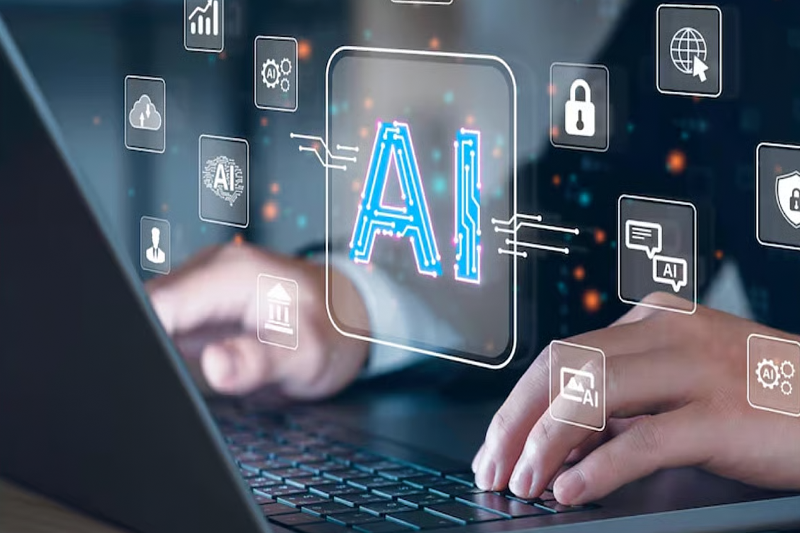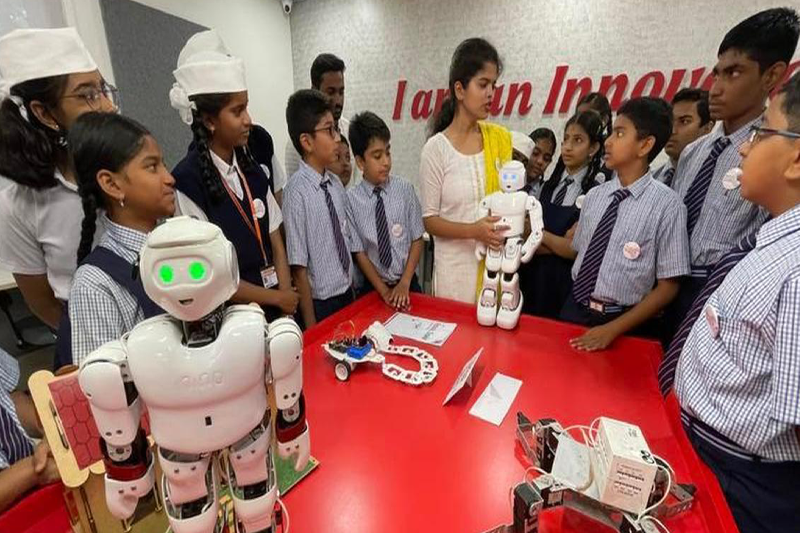
AI Takes Centre Stage in Indian Higher Education: Over 60% Colleges Adopt AI Tools, EY-Parthenon–FICCI Report Shows
Artificial Intelligence (AI) is no longer just a futuristic concept for Indian higher education—it is now an active part of learning, teaching, and administration. According to the latest EY-Parthenon–FICCI report, “Future-Ready Campuses: Unlocking the Power of AI in Higher Education,” over 60% of higher education institutions (HEIs) in India now allow students to use AI tools. From AI-powered tutoring systems to automated grading, colleges and universities are embracing AI at an unprecedented pace, reshaping how education is delivered and experienced in the country.
AI Adoption in Indian Higher Education
The report, based on a survey of 30 leading HEIs, provides one of the most comprehensive snapshots of AI integration in Indian higher education. The findings reveal that:
- 40% of institutions have deployed AI-powered tutoring systems and chatbots to support students.
- 39% are using adaptive learning platforms that tailor educational content to individual student needs.
- 38% employ AI for automated grading, reducing administrative workload and ensuring faster feedback.
- 53% have started using generative AI to create learning materials, including lecture notes, assignments, and interactive resources.
Together, these figures indicate that India is already deep into an AI transformation, with classrooms increasingly resembling AI-enabled knowledge ecosystems rather than traditional teaching spaces.
From Experimentation to Full Integration
Earlier, AI in Indian higher education was largely experimental, used in isolated projects or pilot programs. Today, it has become central to academic and administrative operations. AI is actively employed for:
- Automated grading and evaluation
- Plagiarism detection
- Adaptive tutoring systems
- Curriculum design assistance
- Faculty support in preparing teaching materials
- On-demand student support via chatbots
The shift from experimentation to integration is a clear signal that AI is being leveraged to make learning more efficient, personalized, and interactive.
The Importance of Governance and Policy
While AI adoption is growing rapidly, the report emphasizes the importance of governance frameworks to balance innovation with ethics. Currently, over 56% of HEIs have implemented AI-related policies, laying the foundation for regulated and responsible AI use.
The report stresses that AI integration must be guided by:
- Clear institutional policies
- Faculty training programs
- Upgraded digital infrastructure
- Standardized protocols for student data privacy and algorithmic transparency
Without these measures, AI’s benefits could be undermined by ethical lapses, inconsistent implementation, or lack of preparedness among educators.
Embedding AI Literacy Across Disciplines
One of the report’s key recommendations is to embed AI literacy across all fields of study. It is not enough for students to simply use AI; they must understand it.
- In humanities, business, and social sciences, foundational AI literacy includes understanding AI concepts, ethics, and applications, along with developing critical thinking and digital skills.
- In STEM programs, the curriculum extends to advanced topics such as machine learning, natural language processing, robotics, and AI-powered problem-solving.
The ultimate aim is to produce graduates who are not only consumers of AI technology but creators and innovators capable of designing solutions for real-world challenges.
Challenges Ahead
Despite high enthusiasm, the report notes uneven progress in key enablers of AI adoption. Faculty readiness and digital infrastructure remain critical bottlenecks. Many institutions need significant investment in:
- Faculty development and training to integrate AI into teaching
- Upgraded IT infrastructure for seamless AI operations
- Coherent governance models for AI usage across campuses
Avantika Tomar, Partner and Education Sector Leader at EY-Parthenon India, highlights the necessity of moving “beyond experimentation to scale.” Institutions must integrate AI across teaching and campus operations while embedding AI literacy in every subject, she emphasizes, to position India as a global leader in AI-enabled higher education.
Balancing Innovation and Ethics
The report underlines a crucial principle: AI should enhance human learning, not replace it. With the rapid adoption of AI, institutions must focus on maintaining academic integrity, preventing algorithmic bias, and fostering ethical use of data. This involves:
- Teaching students about responsible AI use
- Developing faculty awareness of ethical AI practices
- Implementing transparent grading and evaluation processes
By balancing innovation with ethics, Indian HEIs can harness AI to improve learning outcomes while ensuring that technology complements, rather than undermines, human capabilities.
Looking Ahead: The Future of AI in Indian Education
The EY-Parthenon–FICCI report paints a promising picture of India’s higher education system in the AI era. Indian universities are no longer passive adopters—they are actively shaping AI-enabled learning ecosystems. The future, as envisioned by the report, includes:
- AI tools integrated into all disciplines, not just STEM
- Students equipped with the skills to create, innovate, and manage AI technologies
- Enhanced collaboration between faculty, students, and AI systems
- Scalable governance and policy frameworks ensuring ethical, fair, and accountable AI adoption
If these recommendations are followed, India could emerge as a global leader in AI-driven higher education, producing graduates who are future-ready, ethically conscious, and equipped to innovate across industries.
Conclusion
AI has already transformed classrooms across India, from tutoring systems and adaptive learning platforms to generative content creation and automated grading. Yet, the journey is only beginning. With the right policies, investments in faculty training, and a focus on AI literacy, Indian HEIs can move from experimentation to full-scale integration, ensuring that students are not just users of AI, but innovators and creators. The balance between technology and human learning will define the next era of higher education in India—one that is ethical, inclusive, and future-ready.


